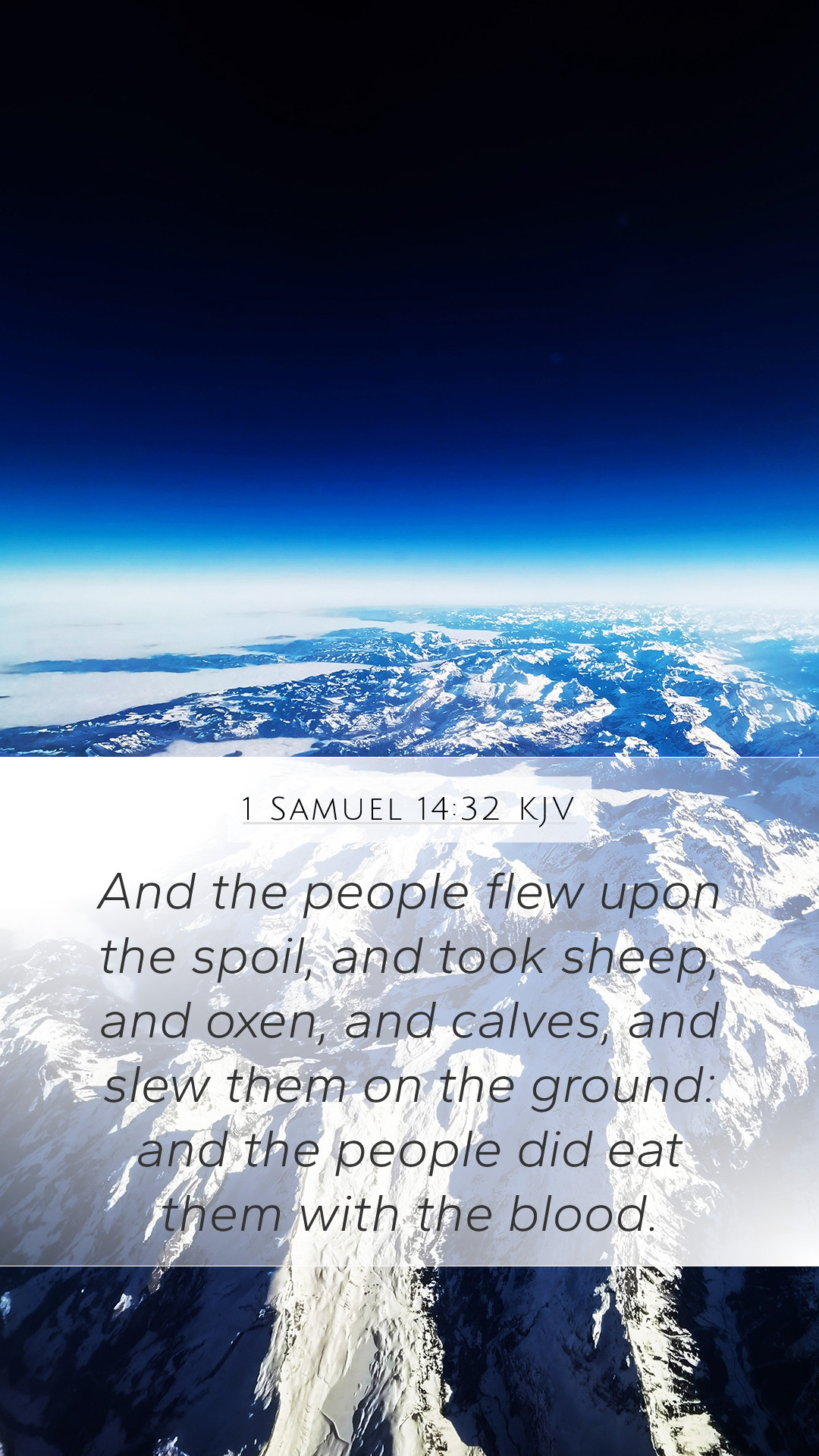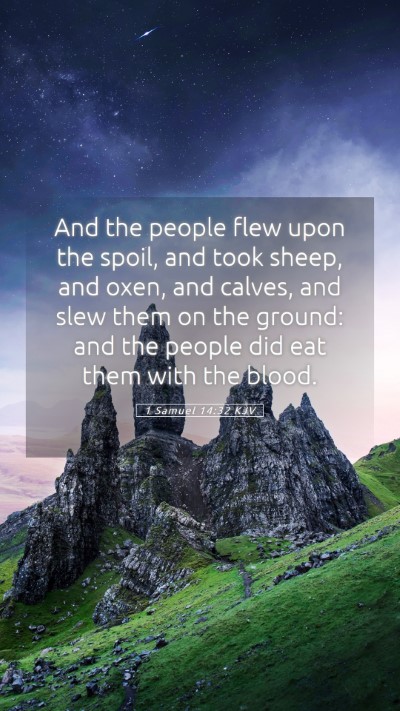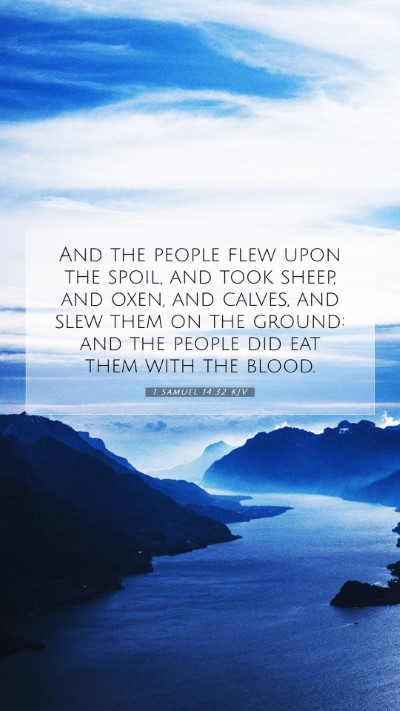Understanding 1 Samuel 14:32
Bible Verse: 1 Samuel 14:32 - "And the people flew upon the spoil, and took sheep, and oxen, and calves, and slew them on the ground: and the people did eat them with the blood."
This verse captures a pivotal moment in the history of Israel during the reign of King Saul. To better understand its significance, we can draw upon various public domain commentaries. Here, we explore insights from Matthew Henry, Albert Barnes, and Adam Clarke, providing a comprehensive analysis of this verse.
Context and Setting
The setting of this passage is critical for our Bible verse commentary. Israel is in a state of conflict with the Philistines, and after a fierce battle, the soldiers are weary and hungry. They have been forbidden to eat until evening, creating a situation of desperation and disregard for the laws regarding consuming blood.
Analysis from Commentaries
-
Matthew Henry's Commentary:
Henry points out the impulsiveness of the soldiers in their hunger. He notes that rather than waiting for lawful means of consuming their spoils, they acted rashly, motivated by their immediate need. This behaviour highlights the struggle between human desires and divine law.
-
Albert Barnes' Notes:
Barnes emphasizes the violation of the Mosaic Law, which clearly forbade the consumption of blood as a matter of sacred obedience. The impulsive act by the Israelites shows a lack of reverence for God’s commandments. He also notes this as a lesson about the dangers of impatience in spiritual and physical matters.
-
Adam Clarke's Commentary:
Clarke elaborates on the repercussions of such actions, suggesting that the people’s disregard for dietary laws stemmed from their intense hunger and the thrill of victory. He mentions that Saul’s leadership did not prevent this moral lapse, leading to a reminder of the importance of spiritual discipline.
Significance of the Verse
The actions described in 1 Samuel 14:32 exemplify several key themes:
- Human Nature: The verse reflects humanity's tendency to act impulsively, especially when in distress. It serves as a reminder about the need for self-control and adherence to God's word, even in challenging times.
- Spiritual Disobedience: The soldiers' actions starkly illustrate the dangers of ignoring divine laws. Their immediate gratification led to a breach of a sacred command, reflecting the tension between physical needs and spiritual responsibilities.
- Leadership Failure: King Saul’s inability to guide his men toward obedience in such moments provides a cautionary tale about the responsibilities of leadership to uphold righteousness and moral conducting.
Related Biblical Cross References
- Leviticus 17:10-14 - Instructions about consuming blood.
- Deuteronomy 12:16 - Prohibition of eating blood.
- 1 Samuel 14:34-35 - Saul’s response to the situation.
Application of the Verse
As we strive for Bible study insights, this passage invites us to reflect on our own lives. In moments of urgency, are we prone to forsaking our values? How can we cultivate patience and trust in God's timing? These underlying questions are significant for both Bible study groups and personal reflections.
Conclusion
In summary, 1 Samuel 14:32 is not just a historical account; it is a profound lesson on the implications of our choices. Through careful Bible verse interpretations, we can derive a wealth of understanding that encourages us to uphold our commitments to God's commandments, even in the face of life's challenges.


